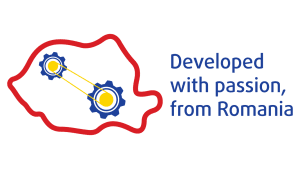Managed Kubernetes AKS Fundamentals using Azure
Course description:
This course is intended for system administrators and application developers who are interested in deploying and orchestrating container applications at scale and have a basic understanding of containers, mainly docker, and want to understand the basic concepts of Kubernetes, it is internal processes and how to deploy everything in Microsoft Azure environment.
You’ll learn container management and orchestration for Kubernetes using AKS. You’ll build an AKS cluster, configure the environment, deploy the cluster, add applications to your cluster and much more. You will also learn how to scale your environment securely and review how to optimize or balance cost, efficiency, and resiliency through monitoring and observability.
Target audience:
• DevOps engineers
• Linux system administrators
• Systems design engineers
• Architects
• Anyone who will provide container orchestration management in the Azure Cloud
Prerequisites for Managed Kubernetes AKS Fundamentals using Azure:
• Students should first have a strong understanding of container technologies
• Basic familiarity with Azure
Recommended:
• Familiarity with the Linux command line
• Familiarity with JSON and/or YAML syntax
Course module structure
Module 1: Kubernetes core concepts
– What is Kubernetes?
– Kubernetes cluster architecture
– Control plane
– Nodes and node pools
– Pods
– Deployments and YAML manifests
– StatefulSets and DaemonSets
– Namespaces
Module 2: Access and identity options
– AKS service permissions
– AKS Node Access
– Kubernetes RBAC
– Azure AD integration
– Azure role-based access control
Module 3: Security concepts for applications and clusters
– Build Security
– Registry Security
– Cluster security
– Node security
– Cluster upgrades
– Network security
– Application Security
– Kubernetes Secrets
Module 4: Network concepts
– Services
– Azure virtual networks
– Ingress controllers
– Network security groups
– Network policies
Module 5: Scaling
– Manually scale pods or nodes
– Horizontal pod autoscaler
– Cluster autoscaler
– Burst to Azure Container Instances
Module 6: Storage options
– Volumes
– Persistent volumes
– Storage classes
– Persistent volume claims
Note:
Every student has assigned to him his own virtual lab environment setup.Additional details:
To attend this course, you need to have:• PC/Laptop with internet access
• Updated web browser
Managed Kubernetes AKS Fundamentals using Azure
-
DURATION: 2 days
-
SKILL LEVEL: Associate
-
LECTURES: 6 lessons
- PRICE: 840 €
- DURATION: 2 days
- SKILL LEVEL: Associate
- LECTURES: 6 lessons
Course description:
This course is intended for system administrators and application developers who are interested in deploying and orchestrating container applications at scale and have a basic understanding of containers, mainly docker, and want to understand the basic concepts of Kubernetes, it is internal processes and how to deploy everything in Microsoft Azure environment.
You’ll learn container management and orchestration for Kubernetes using AKS. You’ll build an AKS cluster, configure the environment, deploy the cluster, add applications to your cluster and much more. You will also learn how to scale your environment securely and review how to optimize or balance cost, efficiency, and resiliency through monitoring and observability.
Target audience:
• DevOps engineers
• Linux system administrators
• Systems design engineers
• Architects
• Anyone who will provide container orchestration management in the Azure Cloud
Prerequisites for Managed Kubernetes AKS Fundamentals using Azure:
• Students should first have a strong understanding of container technologies
• Basic familiarity with Azure
Recommended:
• Familiarity with the Linux command line
• Familiarity with JSON and/or YAML syntax
Course module structure
Module 1: Kubernetes core concepts
– What is Kubernetes?
– Kubernetes cluster architecture
– Control plane
– Nodes and node pools
– Pods
– Deployments and YAML manifests
– StatefulSets and DaemonSets
– Namespaces
Module 2: Access and identity options
– AKS service permissions
– AKS Node Access
– Kubernetes RBAC
– Azure AD integration
– Azure role-based access control
Module 3: Security concepts for applications and clusters
– Build Security
– Registry Security
– Cluster security
– Node security
– Cluster upgrades
– Network security
– Application Security
– Kubernetes Secrets
Module 4: Network concepts
– Services
– Azure virtual networks
– Ingress controllers
– Network security groups
– Network policies
Module 5: Scaling
– Manually scale pods or nodes
– Horizontal pod autoscaler
– Cluster autoscaler
– Burst to Azure Container Instances
Module 6: Storage options
– Volumes
– Persistent volumes
– Storage classes
– Persistent volume claims
Note:
Every student has assigned to him his own virtual lab environment setup.Additional details:
To attend this course, you need to have:• PC/Laptop with internet access
• Updated web browser
Be the first to hear about our latest courses by signing up to our mailing list.
Contact

